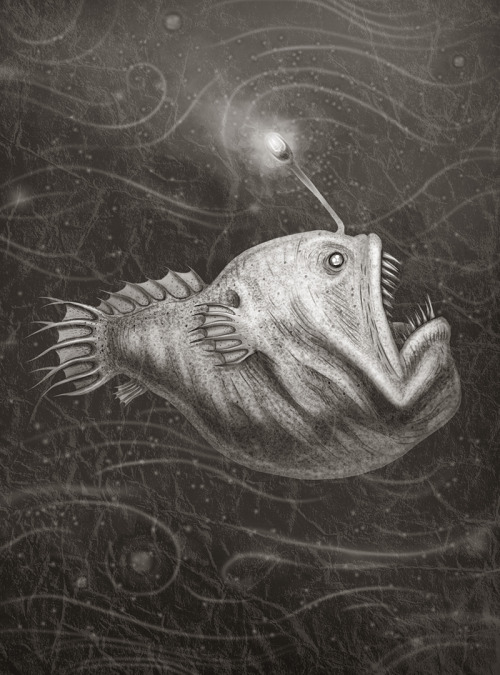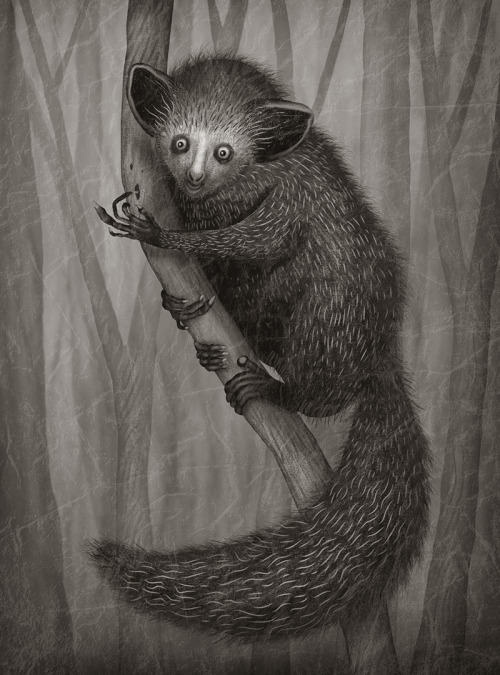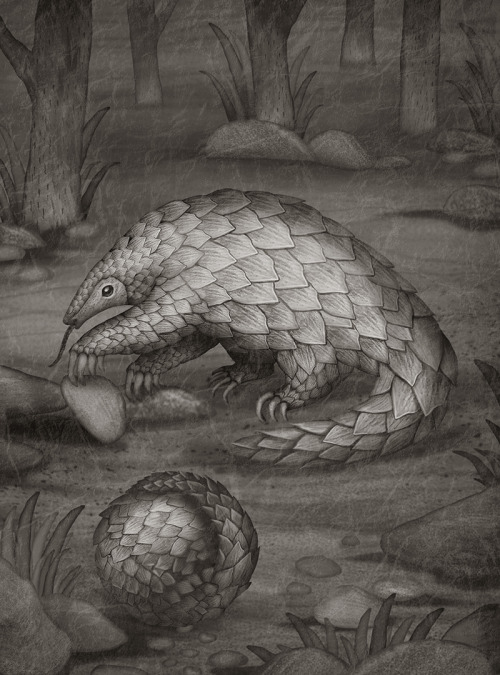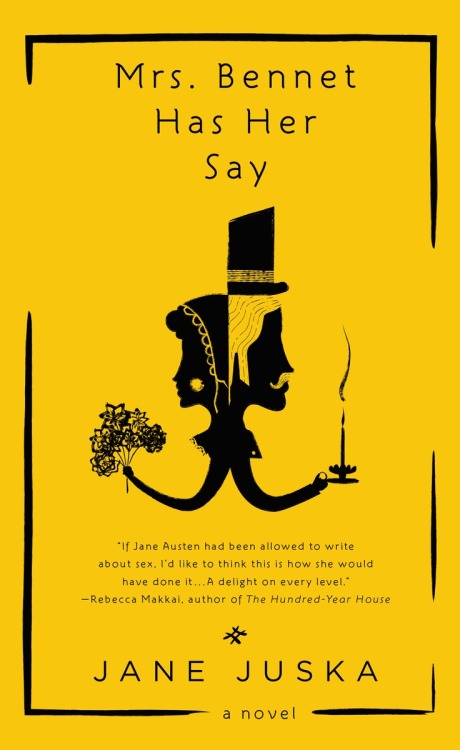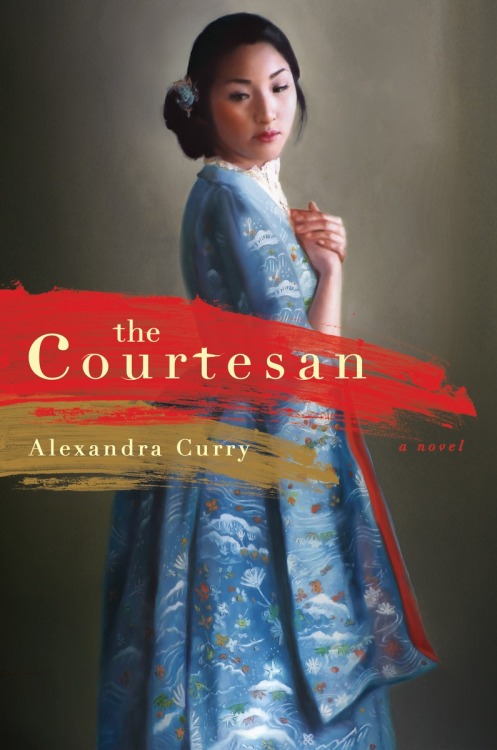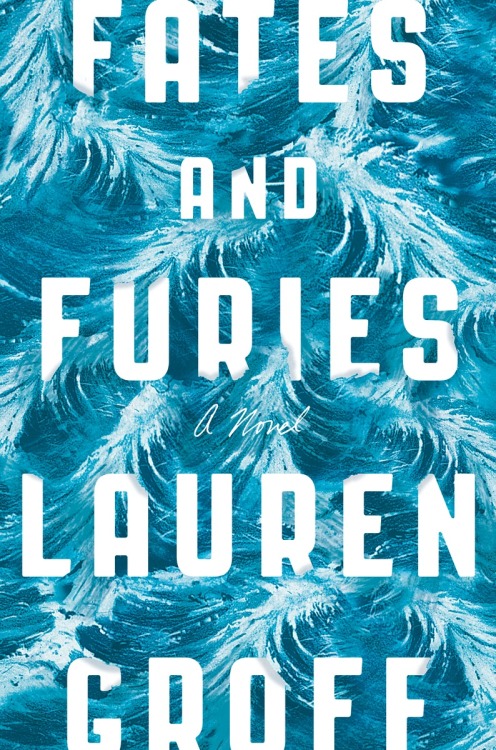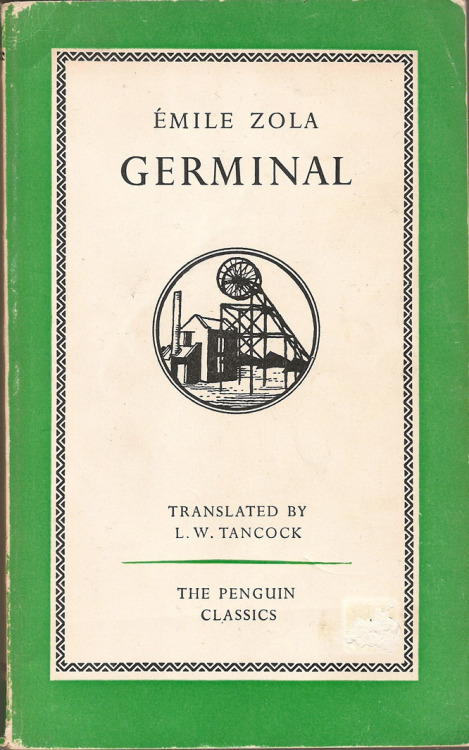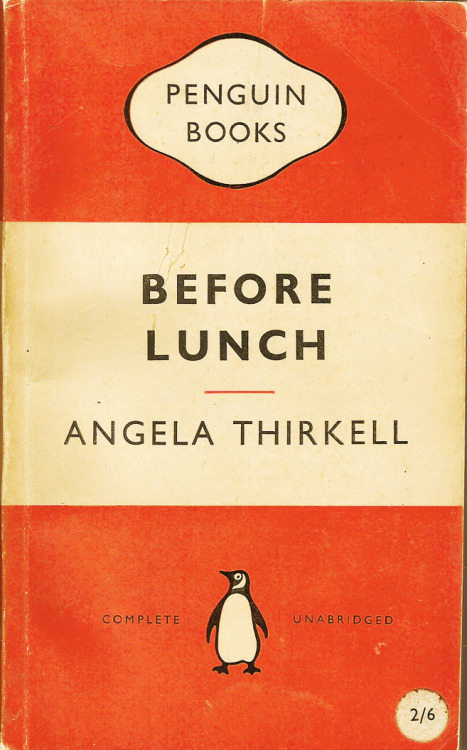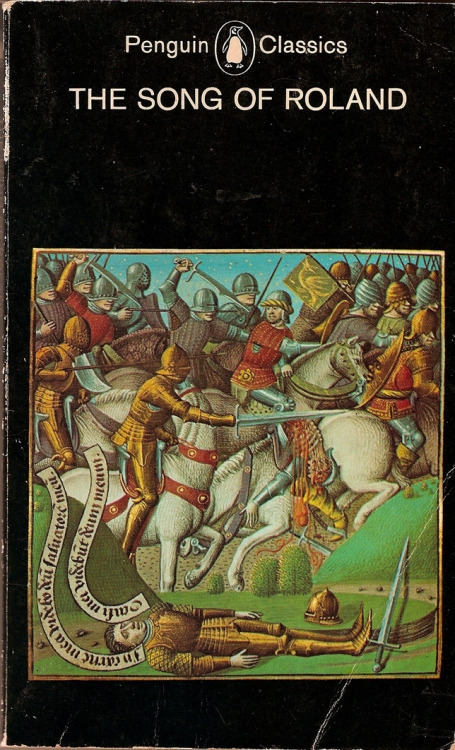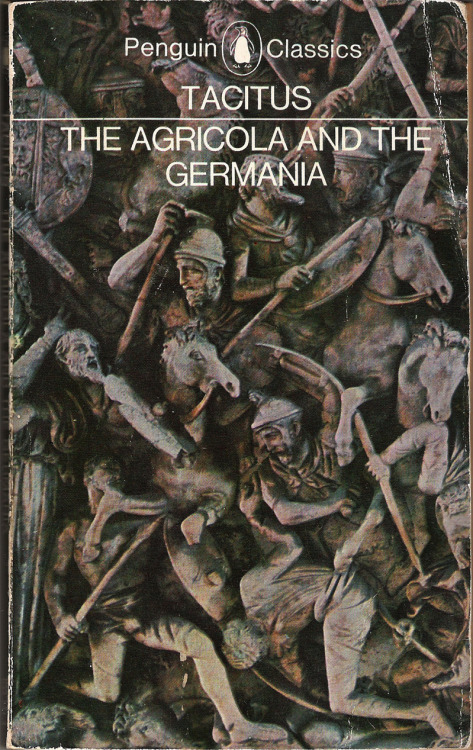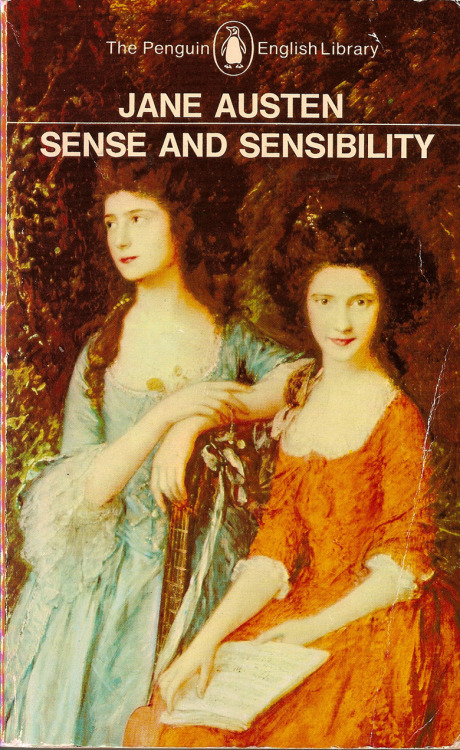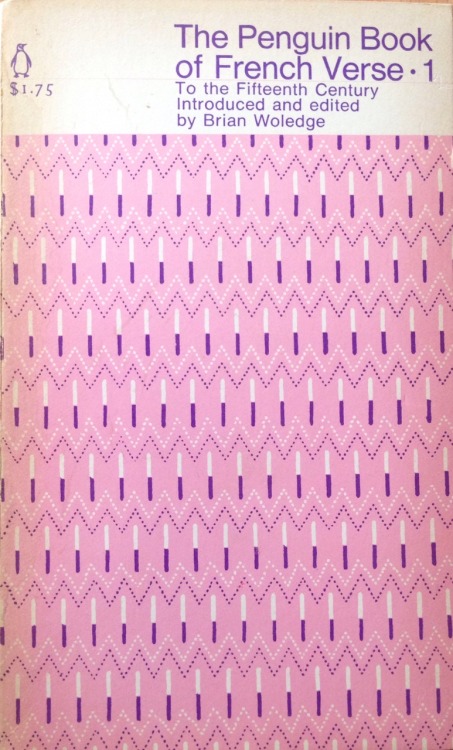#penguin books
Spent the afternoon recreating Dorian Gray’s desk (or at least, what I imagine his desk to be like) ♥ The newspaper is a replica of one from 1895, the closest I own to the book’s setting. There’s wine, naturally, cherries, and an unfinished letter to Sybil beginning “Dear Sybil, my Rosalind, my Juliet, I have never been so happy…” I refrained from including paints/paint brushes, as much as I wanted to, because they wouldn’t feature on an authentic Dorian Gray desk. Basil was the artist after all.
Post link
Cover artwork and 70+ black and white illustrations created for a book ‘The Wasp That Brainwashed the Caterpillar’ written by Matt Simon & published by Penguin Books!
https://www.behance.net/gallery/40762525/The-Wasp-That-Brainwashed-the-Caterpillar
Thanks for viewing!
Post link
Mother, today there comes back to mind the vermilion mark at the parting of your hair, the sari which you used to wear, with its wide red border, and those wonderful eyes of yours, full of depth and peace.
- The Home and the World (1916), R. Tagore
Post link
The Time Traveller (for so it will be convenient to speak of him) was expounding a recondite matter to us
- The Time Machine (1895), HGW
Post link
To the red country and part of the gray country of Oklahoma, the last rains came gently, and they did not cut the scarred earth.
- The Grapes of Wrath (1939), J. Steinbeck
Post link
A WORD FROM THE AUTHOR
A video from Nancy Herriman, author of No Comfort for the Lost.
A WORD FROM THE AUTHOR
A video from Charlie Lovett, author of First ImpressionsandThe Bookman’s Tale, on his latest novel The Further Adventures of Ebenezer Scrooge.
Enter the Librarian, a Review by Josh Hanagarne
The Hanging Girl by Jussi Adler Olsen
Every time I finish a new Jussi Adler-Olsen book I find myself thinking…I loved that. I kind of wish I didn’t. To wit, the Department Q detective series is some messed up stuff, and The Hanging Girl fits right in.
A brief digression:
I was rereading Geek Love by Katherine Dunn not too long ago. Published in 2002, it’s the incredibly disturbing story of a family of circus freaks. The parents gleefully experiment with drugs each time the mother is pregnant, attempting to create more severe birth defects and thus, new attractions for the show. The uproar in certain circle was calamitous. Geek Love became my yardstick for how shocking a book could be. But again, that was 2002.
If it came out today, in a market saturated by brutal bestselling books replete with heinous crimes against women, Geek Love would still be a masterful work, but its power to shock wouldn’t be anywhere near as potent as in 2002.
Back to The Hanging Girl In an era where there’s a lot of what we might call “Stieg Larrson lite,” violent nordic mysteries about savaged women and deviant villains have also lost their power to shock this reader. Except for Jussi Adler-Olsen and my halfhearted desire to stop enjoying their books.
They’realwaysshocking. They’re always brutal. They’re always so messed up, even now that every other thriller is trying to up the ante with gruesomeness. And they’re always surprising, even though the Department Q series has been going for a while now and you more or less know what to expect as far as tone and content. This is the highest compliment I can pay to an author working in a genre that is often predictable: I never have any idea what Adler-Olsen is up to.
Ok. Fans of detective Carl Morck will be happy, if not surprised, to learn that he is still irascible, world weary, capable of great quips, not as long-suffering as his subordinates might wish, and his detective skills are as sharp as ever.
This time the case is–again, this is saying something for an Adler-Olsen novel–peculiar and grim. An old case–if you’re unfamiliar with the series, the books often begin with a profoundly cold case being foisted upon Morck, who gets intrigued and involved against his better judgment–lands on his desk.
A seventeen years old girl vanishes from her school. If I tried to tell you where the story lands, and the circuitous route by which it arrives, you’d be as likely to say “Huh, how?” as to say “Whoa! When does it come out?”
Adler Olsen’s villains are some of the best in the business, and the shrewd, manipulative psycho he’s concocted here is truly chilling. I’m such a sucker for brilliant weirdos in books, and this one is put to fantastic use.
I’m also an easy mark for cult material, and The Hanging Girl involves some religious…zealots. You may never look at the sun quite the same way again.
If you love great mysteries, you will not be disappointed. I’ve yet to outguess the author, and most of the twists are the opposite of telegraphed. But again, be advised–The Hanging Girl in terms of content, is comparable (I would say better in most ways) with Stieg Larsson’s Millennium series. It is violent, disturbing, cynical, very funny, and I believe it may be the author’s finest work.
But if you think it sounds like it’s too much for you, consider that a clue. To repeat myself yet once more, I almostwish I didn’t love his books. I always wonder what it says about me.
Post link
ENTER THE LIBRARIAN
A review by Josh Hanagarne
Fates and Furies by Lauren Groff
My first exposure to Lauren Groff was her masterful short story collection Delicate Edible Birds. I couldn’t wait to see what else she had written. I then raced through ArcadiaandThe Monsters of Templeton and couldn’t have been happier.
(Seriously, it’s worth mentioning again. The title story in Delicate Edible Birds is one of the most unsettling, lyrical short stories I have ever read.)
Then, having read them all, the long wait for the next book…
During some of the initial hype over Fates and Furies, someone described it as “Gone Girl with slightly nicer people.” This has already become a tiresome characterization of several other novels I won’t name, although the characters are generally getting meaner, not nicer… But I had faith. Groff obviously slaves over her writing, and would be the last author I’d expect to try and cash in on the Gone Girl lite party. (For the record, I loved Gone Girl).
She doesn’t disappoint.
It’s hard to say much about Fates and Furies without getting into spoiler territory. Here’s the least you need to know: it’s about a marriage that looks ideal and isn’t as perfect as it seems. Yes, this is territory we’ve seen before, but I would happily read Groff’s revitalization of every tired old trope in existence.
So then:
Lotto (short for Lancelot, of all things) and Mathilde marry in their early twenties after an extremely brief courtship. His friends are skeptical. Lotto is a veteran seducer of insatiable sexual appetites, and no one believes he’ll tie himself into monogamy. But so he does, and his side of their marriage comprises the first half of the book.
Enter Mathilde and her viewpoint. This is where many of the Gone Girl clones go off the rails. Of course each spouse in a marriage has a different perception, different memories, and experiences the relationship in different ways. But the twists are getting increasingly loopy, the partner who is “not quite what he/she seems” is getting increasingly crazier/manipulative/calculating/sociopathic, and it’s getting easier to see it coming.
Mathilde’s experience, which I won’t spoil, is one of the things that makes the book so special. But Groff apparently didn’t feel any pressure to make her an absolute lunatic. So many “edgy” novels about relationships these days could be filed under “Nasty people doing nasty things to each other and there’s lots of sex as well.”
Back to revisiting the well: Fatesis full of sex, but in a truly surprising way. The nature of desire is itself a major character in the book. Many of the questions the book raises about sex would be rewarded by a second reading.
Highly literary, meticulously plotted, and beautifully written, Fates and Furies reminds me of Elena Ferrante, the best Ian McEwan, and hints of Roberto Bolano. But, as with most of my favorite writers, Groff’s voice is so distinct that her books can best be compared only to her other books.
She has outdone herself. I know she’ll do it again. I just hope the wait won’t be long. Enjoy!
Post link
Trouble in Paradise
I have always imagined that Paradise will be a kind of library.
—Jorge Luis Borges
And I’ll bet it won’t have an internet connection. Thank you, God.
When I was five, in 1938, and living in a small town in Ohio where there was no TV, no movie theater, some radio, I spent my hours at the town library, one floor above the fire station, across the street from the doctor’s office, next to the hardware store. It doubled as the town hall. Inside the library, which one reached by climbing a long, broad staircase, at the end of the room sat Sarah Levi. I do not recall her smiling or walking—she may have had a disability—but she stamped happily all the books I could carry and told me to come back soon. And I did, sometimes to check out Gone with the Wind for my mother—again— or Taylor Caldwell’s newest for my grandmother, or, as I grew older, Frank G. Slaughter’s Battle Surgeon, for me. Here Miss Levi put her foot down. “Wait a few years,” she said. Paradise looked a little less perfect right then.
Since then I have lived in libraries of great renown: The British Library, the Bancroft’s rare books room in Berkeley, the Barnes Collection at the New York Public Library. I was right there in San Francisco with Nicholson Baker and his objections to ridding the new library of its card catalogues. I lamented the self-checkout system, and in the university undergraduate library I screamed (inwardly of course) when I saw that on its first floor there were no books. Where was I?
Now, having left grandeur behind, I find myself in a small town (pop. 1200) not altogether different from the one where I grew up. The library—and yes, it has one—is a log cabin with reduced hours and a reduced collection. It is a starving library. To the Rescue!!!!! The California state librarian, who goes by the name of Greg Lucas, an alias for Superman, heads the program that makes books, new and old, available to the borrower upon request. Named Zip Books, the program is designed for rural communities in California. Here’s how it works: I fill out a form with title and author, and if it is not already in the catalogue (and rarely it is) and does not cost more than $35, Wanda the librarian, reduced like everything else library-related, sends the request to Heaven and Heaven sends the book directly to my post office box. I read the book and give it to the library. Cost to me: nothing. Benefit to me: everything.
So, grudgingly, I admit that technology can work to our advantage as long as people like Greg Lucas and Wanda are around to keep things as Miss Levi would have them. Thanks to them, the Chester Public Library has become a little corner of Paradise, quite enough for now.
Jane Juska
Chester, California
Post link
1. The Courtesan tells the fascinating story of real-life historical figure, Sai Jinhua. How did you come across her story?
It was one of those chance-propelled moments that could so easily have slipped away—but didn’t. It was the last day of my first trip to China, and I was in the Yu Garden in Shanghai overlooking the famous Jiu Qu Bridge, that with its nine zig-zag turns was built to confuse evil spirits crossing the water. It was there that I overheard a tour guide make mention of the famous 19th century Chinese courtesan who travelled to Europe as the wife of a diplomat. The guide spoke no more than three sentences about Sai Jinhua, but it was one of those visceral fascinations that grabbed me immediately. I said to my one-in-a-million husband, “If I were going to write a book—which I am not—this would be the story I would like to tell.” And he turned to me and said, “Well, why don’t you?” Such an improbable thing, really, that I was standing there and not elsewhere, that I was listening and not daydreaming, that I was married to this man who said go for it and not to someone else. Had all of these things not aligned, I feel sure that I would not have written this book, or for that matter any book.
2. What was it that drew you to the courtesan’s story?
I was a young girl when my family moved to the other side of the world, to Singapore, which was at the time and still is a fascinating multi-cultural place with a population of Chinese, Malay, and Indian people. It is a busy place of tremendous population density, where life unfolds outside in the streets and in the markets and in sights, sounds, and smells that seep through the open windows of colonial era buildings. Arriving there gave me the thrill of my life. It was exotic and loud and pungent and delicious—and also alienating. People everywhere—all with faces not like mine. I felt as though I knew nothing and wanted more of everything—and at the same time I wanted to go back to what was familiar and safe.
So standing at the edge of the Jiu Qu Bridge, I remembered all of this. And I wondered—what was it like for a young women one hundred years earlier, to leave her home in China and go to a Europe that was strange and disorienting and fabulous—where people all had faces not like hers?
3. You did very in-depth research to prepare for writing The Courtesan—were there any interesting anecdotes or facts that didn’t make it into the novel? What was the most helpful historical resource?
Oh, yes. Boatloads of material did not make the cut, not because it wasn’t interesting stuff, but because no one would read a two thousand-page novel that rambles through the lives of dozens of people. The missionaries of the time had fascinating stories, as did the Chinese imperial eunuchs, the brilliant English con man Edmund Backhouse, the much-maligned Chinese empress dowager, the fragile Austrian empress, Sisi, and Count Alfred von Waldersee’s manipulative American wife, Marie. In the context of this novel, I could only place hints about these people’s stories. I would have loved to do more.
As for Jinhua, the evolution of her legend was something that had no real place in the novel, but is a story unto itself. In the beginning, I could well imagine that she, herself, propagated the tale of her romance with first the diplomat, Hong Jun, and then Waldersee, as well as her role in the aftermath of the Boxer War. The tale would certainly have served the interests of her professional endeavors as a courtesan/madam, and it took hold quickly with several writers in China, first as a romantic poem and later as a series of allegorical narratives with diverse social and political implications. China was negotiating its way to the end of the decadent imperial era and the turbulent founding of the Republic of China, and it was a time of introspection among many Chinese intellectuals. There were, therefore, renderings of Jinhua’s life that highlighted the depravity of late Qing society, as well as China’s humiliation at the hands of the West. Jinhua was portrayed in the literary treatments of this era as an unscrupulous, promiscuous figure, her husband, Hong Jun as an ineffectual and unenlightened bureaucrat. Later came the devastating war with Japan, and the standoff between Chiang Kai-shek’s Nationalists and Mao’s Communists, and the treatment of Jinhua’s story dating to the 1930’s recasts her as a patriot and heroine, who intervened with her lover, Waldersee, to stop the rape and pillage of China by the occupying forces after the Boxer War. She became a heroic figure and this treatment was used in oblique criticism of the Chinese Nationalist government’s impotence in defending China against the Japanese. Later still, during the Cultural Revolution, she was posthumously criticized for her treasonous “collaboration” with Waldersee and his cohorts.
4. At its heart, The Courtesan is both a personal and a political novel—did you consciously set out to tell a political tale? How does the dynamic between East and West in the novel relate to our world today?
I began with a profound interest in Jinhua’s life and her experiences traversing the cultural boundaries between East and West at a time when East and West were largely unfamiliar, each with the other. I wanted to explore in a fictional way and a long ago context what I had experienced myself as a young girl moving to Asia from the West. So the novel began as a personal one both for me and in being the story of a woman’s life—and yet as I learned more about Jinhua, who she was and why her story is told today, the political context was, and is, an inextricable part of what needed to be in the novel. Without it, she would be just another woman who made a living in the sex trade and was forgotten.
I think that the dynamic between East and West that I have tried to illuminate (largely from the Chinese point of view) is a significant piece of the transition to the globalized world we live in, one in which China is a player with which to be reckoned. We in the West tend to think of China primarily in terms of the dual narrative of economic might and political repression, and the age of imperialism as it relates to China is pretty remote to the western world view of today. Several of the events referenced in the novel, however, are very much a part of China’s own narrative regarding its history. They are part and parcel of what is known as “the hundred years of national humiliation,” which began with the First Opium War and ended with the establishment in 1949 of the People’s Republic of China. These hundred years, during which the Middle Kingdom was more or less continuously under siege from an assortment of European nations, America, and Japan, have not been forgotten in China. They are a part of the backdrop to what one might call China’s “official nationalism.”
5. Sai Jinhua has been portrayed as both a villain and a heroine throughout history. Do you find her to be an ultimately sympathetic character?
I really do need to distinguish here between Sai Jinhua the historical figure and “my” Sai Jinhua, and I would have to confess that it took me a long while to develop sympathy for her as a character. In the early days of writing I didn’t like her much. I found her to be a hard and opportunistic woman, which I suspect she ultimately was. But as I worked to give her a story, she became a quite different person. She became vulnerable in ways that I could understand. I fell in love with the notion of a young woman, injured, traumatized, telling herself stories for comfort, trying to believe in them as truth. It is something we all do in one way or another, even as adults—and the line between what is true and real and what is not becomes so readily blurred by the way in which our minds work. This happens to Jinhua, and for me it made her very human.
9. A major theme in The Courtesan is the importance of female friendship—Sai Jinhua and Suyin’s special connection serves as a life-sustaining force for both of them. Where did you find the inspiration to write about this friendship?
Actually, my early vision for the story was a validation of the love affair between Sai Jinhua and Alfred von Waldersee. Suyin began as a transitional character who wasn’t meant to have much significance beyond the early brothel scenes. In my first draft, when I arrived at the Palais Kinsky I found myself missing her wisdom and friendship, and at the same time I felt a growing sense of disbelief that the love affair with Waldersee had ever happened. Jinhua, after all, was so very young—13 years old when she travelled to Europe, and Waldersee would at the time have been fifty-five years old. The gulf between them would have been enormous in many other respects, and I found myself believing that the affair was an infatuation on Jinhua’s part—the fantasy of an impressionable (and traumatized) child who looked to stories to sustain herself and very much wanted and needed an idealized hero, a Kavalier. It was at this point that I also realized that the person she really loved and needed was Suyin, who was wise, and damaged, and nurturing, and who loved Jinhua.
The inspiration for Jinhua’s relationship with Suyin came partly in a spontaneous way from listening to my characters, and from thinking about what was real and abiding in their lives. And then, of course, I found the resonance in my own life—in my relationship with my sister—and in observing friendships between women and seeing how they evolve and deepen as we get older. I have seen this with my mother and her friends. I have seen it with my own.
10. You have lived in Asia and speak several languages. How did this impact your writing and the language in The Courtesan?
Actually I dabble in more languages than I speak—but I will say that I found the various languages that make shadow appearances in the book a marvelous tool to evoke the ways in which the various cultures are different and yet the same. Borrowing idioms from the Chinese and German languages gave me fresh and authentic ways to talk about what my characters observed and felt. To talk about a moment in time being as brief as the time it takes to drink a sip of tea gives so much cultural context. And where a Chinese might call someone “as thin as a scallion,” an Austrian would say “hauchdünn,” which means as thin as a breath. What the British call “the black sheep of the family,” the Chinese call “the harmful horse of the herd.” It is wonderful stuff. It made my material so much richer—and it was all so much fun to think about.
11. As a debut novelist, how did you find the publishing process? Any surprises?
I would have to say that I have found the experience to date both fascinating and very rewarding, and of course, there is a great deal still to come. The thing that perhaps has surprised me the most is the level of commitment to the effort of producing the novel in terms of editorial input, attention to story, willingness to share and listen and discuss. I was astounded at how carefully my agent, editors, and copy-editors read the manuscript—how diligent the copy-editors in particular were in fact-checking the smallest of details and helping me make sure that all was right. I would say, unequivocally, that The Courtesan is a much better book in every way for having been through this process, for having been in the hands of people who love books in a truly professional way.
Post link
When I was approached about writing a piece for an audience of librarians, one thought crowded out all the others—of which there were many. I will begin with the one because it is the best and only way I know how to write about my own lifelong experience with you, our keepers of books, stories, and knowledge.
My first novel, The Courtesan, is dedicated to my younger sister, my only sibling. She was not a librarian, but she should and could and would have been had she not died many years before she was finished with the pleasures of being alive. She was a great reader, a voracious consumer of books and stories and knowledge. She spent untold hours of her life thinking and talking about books, encouraging her own and other children to read, and volunteering in libraries. These were pastimes that gave her enormous joy. They were the things that she loved. As her cancer progressed, my sister brought books by the armload home from the Wilton Public Library in Connecticut, a place that became her last library. A stay-at-home-mother at the time, a woman with a formidable business career behind her and huge potential ahead, she was offered a job at the Wilton Library just as her cancer entered its most aggressive and final phase. It was a job she would at any other time and under any other circumstances have ached to take. She had to say “no”, but she continued to read when she couldn’t sleep, while enduring the poisons of chemo, when she was alone, and while she sat with one eye on her children doing their homework. She read, I am sure, to distract herself from the terrible truth of her cancer and to glean what she could from what remained of her life.
When my sister died, the awful business of applying for her certificate of death loomed before any of us was ready. It was the evidence delivered much too soon: Decedent’s Legal Name…Sex…Social Security Number…Final Place of Residence. Decedent’s Usual Occupation….
It was our mother’s last gift to her daughter and my sister, Judith Gambrill Brewer, to propose that we list her ‘Usual Occupation’ as that of librarian. She had been a wife and a mother, a woman with other careers, but a librarian is what she would most joyfully have been had the fates not intervened.
So what I have to say to you, my audience of librarians, is thank you. Thank you for valuing books and all that they mean to the human experience. Thank you on behalf of my sister and her children—and on behalf of all of us whose lives are enriched by reading.
- Alexandra Curry
Post link
Be sure to check out these amazing reviews for Lauren Groff’s Fates and Furies!
“In a swirling miasma of language, plot, and Greek mythology, Groff weaves a fierce and gripping tale of true love gone asunder.” Publishers Weekly goes on to praise Groff’s prose as “variously dewy, defiant, salacious, and bleak—a hurricane of words thrown together on every page… an intoxicating elixir,” even while “so much of the power in this book lies in what’s unspoken.”
Library Journalconcludes that “Like a classic tragedy, Groff’s novel offers high drama, hubris, and epic love, complete with Greek chorus–like asides. A singular and compelling literary read, populated with extraordinary characters; highly recommended.”
Kirkus Reviewsdeclares it an “ambitious, sharply drawn novel,” and observes how “The plotting is exquisite, and the sentences hum; Groff writes with a pleasurable, bantering vividness.” The review concludes with: “An intricate plot, perfect title, and a harrowing look at the tie that binds.”
Post link
Enter the Librarian, a review by Josh Hanagarne
The Wind in the Willows by Kenneth Grahame
Did you know that a toad can be sentenced to prison for twenty one years for stealing an automobile? If you have read Kenneth Grahame’s The Wind in the Willows, the answer is definitely yes.
But enough about toad-based jurisprudence.
I’m writing this while trying not to watch people on the street outside, going about their days off in the sun and splendor. And I’m thinking of The Mole from Kenneth Grahame’s The Wind in the Willows, and I’m thinking that The Mole gets it:
“After all, the best part of a holiday is perhaps not so much to be resting yourself, as to see all the other fellows busy working.”
But I’m the chump inside, and I feel The Mole laughing at me. Well, perhaps I’m not as miserable as I let on. I’ve been revisiting books that simply feel like summer, and The Wind in the Willows is the pinnacle. It is a ray of soporific sunshine in print if there has ever been one.
The book contain the adventures of Ratty, Mole, Mr. Toad, Otter, the Badger, and a few other peripheral animals. It is impossible to make it sound as hypnotic and entrancing as it is, but there’s a line early on that sums it up best:
By the side of the river he [The Mole] trotted as one trots, when very small, by the side of a man who holds one spell-bound by exciting stories.
For me, The Wind in the Willows is that river. Turning the pages, I trot along beside it. It makes me want to take a nap. It reminds me of summer sleepovers. Of being annoyed with friends and going on picnics. Of feeling the sun on my back and knowing the days were so, so long. Of audacious experiments and big ideas proposed by aspiring daredevils and naive kids like myself.
It reminds me of standing at the edge of a dark treeline in Nevada, hearing Rat talk to Mole about a similar forest:
That? O, that’s just the Wild Wood…we don’t go there very much…beyond the Wild Wood lies the Wide World.
As a child, summer was the Wide World collapsed into the next bike ride, or snack, or fishing trip, or backflip on my trampoline. Despite being so small, the world was bursting with possibilities that often feel lost to me now.
As an adult, the sections dealing with angst, emotions, and panic resonate more sharply than I would wish. There is some seriously melancholic stuff in The Wind in the Willows, pure elegies like falling leaves.
And it’s not all picnics and embraces. When you least expect it–because honestly, when would you expect it?–the God Pan also makes an appearance. It is one of the more lyrical, haunting passages I’ve read, and the whole scene would fit perfectly in a Pink Floyd video.
This book is also where I learned the word “selvedge.” Say it out loud. It’s pretty. In fact, as irresistible as the writing is, its melodious brilliance is even more evident when read aloud. Try it.
It’s impossible to be nostalgic for a place to which you can still return. So, sadly, if you’re at all like me, you get nostalgic for childhood sometimes. But reading The Wind in the Willows at the onset of summer, trapped inside working like a sucker in a way that Mole would relish, is about as close as I can get. It’s such a sweet, sweet book. It makes me want to take a nap in the bottom of a rowboat. Join me, and together we will be lazy, sun-baked, well-read slugs.
Post link
A WORD FROM THE AUTHOR
J. Ryan Stradal, author of Kitchens of the Great Midwest
As a skinny, un-athletic, book-loving kid growing up in a Minnesota hockey town in the 1980s, the local and school libraries were more than my sanctuary—the books they held were like personal messages in bottles from a larger world. I knew I’d never fit in with the boys who spent their days on backyard ice rinks, and I found not only a community, but a focus for my intensely curious young mind in the libraries of my childhood..
Like a lot of kids, I loved dinosaurs, and in second grade, the librarians in my elementary school put me to work on a map describing the “Dinosaurs of North America.” This wasn’t a school assignment—it was completely voluntary—but when they suggested it to me, I knew exactly what I wanted to be doing after school. When I had exhausted the library books at my school, they sent away for others. One of them, The Dinosaurs of North America, by Helen Roney Sattler, became my favorite.
The librarians urged me to write her a fan letter—and to my unspeakable joy, she replied. I remember her envelope had a “Help End Hunger” stamp, and her typed response emphasized the importance of readers like myself. It was both magical and demystifying to receive a personal letter from an author; until then, I had thought of writers as deities, and this letter was proof that they were actually people—kind people who wrote letters back to little kids in Minnesota. It was the first time that I thought, I could do this too, someday. And it was all thanks to the urging of an astute and caring librarian.
As I got older, I expanded into U.S. Presidents and Greek mythology, and by then, the local school libraries couldn’t sustain me; my grandparents had to drive me up to the Twin Cities, where I could find the intensely detailed books on these subjects in the Minneapolis and University of Minnesota libraries. It seemed that, as my intellectual curiosity grew, there would surely be a library somewhere with the answers I needed, and indeed, that has always been the case.
I also attended my first reading at a library—not a story time for children, but an adult reading for adults (though I was eleven at the time)—and it blew me away. It was a writer reading from his book about voyageurs, the early French explorers of northern Minnesota. I’m not sure if the topic even mattered to me; I was transfixed, and if my heart hadn’t already desired being an author someday, that evening confirmed it.
Today, with my first novel, Kitchens of the Great Midwest, coming out at the end of July, my publisher, Pamela Dorman Books/Viking has scheduled a book tour, but the first place I scheduled on my own after the official tour concludes is an appearance at my hometown library in Minnesota. My childhood would have been vacant and lost without it, and without the responsive, engaged librarians of my childhood. Even though it’s not the same building I knew as child, it’s going to be incredibly moving to read there as an author, among the books and the people that started me on this path, so long ago.
Post link
Enter the Librarian, a review by Josh Hanagarne
Kitchens of the Great Midwest by J. Ryan Stradal
I grew up feeling like I didn’t understand food. Not only that I didn’t know how to cook it, but I felt like I didn’t even know how to eatit. My family loved eating more than anything. Each of them had a specific dish for a best friend. The relationships were intense and oft-scrutinized. They enjoyed every bite more than I could enjoy anything.
My best friend wasn’t a sandwich or a gumbo. He was a boy named Travis, and my primary reason for eating was so I didn’t die.
Not much has changed these days, except that I’ve read a book that makes me want to learn how to cook: J. Ryan Stradal’s Kitchens of the Great Midwest. The descriptions of food reminded me of The Debt to Pleasure by John Lanchester, but without the sociopathic gourmand. The included recipes reminded me of my grandma’s bookshelves. Most of her favorite novels were mysteries that included quilting patterns and recipes for various custards.
ButKitchensis completely original. There is nothing derivative about its story, style, characters, or humor. I can truly say it’s one of the nicest surprises I’ve had while reading a book. If I say, “How’s this sound? There’s a story about love and there’s some food and cooking in it,” would your engine start revving? Maybe. Maybe not. Mine didn’t. It sounds like it could be similar to plenty of other books. But wow, it’s not.
Every chapter focuses on a different character and a different dish. I’ve read books where there are too many characters who receive too little treatment and as a result I wind up not loving or knowing or hating any of them as much as I’m supposed to. But that’s not the case here. Stradal understands how to develop characters. To endear them to us or repulse us by their smallest words and actions. He absolutely understands what it means to be a horny teenage boy. And a frustrated father who worries that he might not be measuring up. The tormented inner life of a man trying to date again after the loss of his wife. The petty jealousies of someone lovely who recoils when losing someone’s affections to a less attractive woman.
It’s about many different people and their relationships and the wonderful and awful things we can do to one another. It was uncomfortably familiar, and also a celebration of how we can all do the right thing sometimes, even if sometimes it happens by accident.
And it’s funny! Far and away, this was my favorite part of the book. It is so funny. It’s not a relentless, desperately quirky gag reel of a book. It’s easy enough to populate pages with a bunch of quirky weirdos, and Minnesota has been a target for writers who want to craft idiosyncratic oddballs. But Stradal obviously knows and loves his characters, and they’re far more than comic fodder.
My favorite character is a tall, sometimes awkward girl named Eva. By the age of ten she is a brilliant cook. Early in the book bullies dare each other to kiss her, even offering money for whomever has the “courage” to do so. She responds by whipping up an impossibly hot sauce, holding it in her mouth, and spitting it into one of their faces when he tries to kiss her the next time. It might be the only time I’ve actually cheered out loud when something happened in a book. I was sitting in an empty room when it happened.
I think part of it is because Eva reminded me of my food-wild family. But every character resonated with me. Every single one of them made me nod at some point and think, “Yes, people are like that. Ican be like that.”
Kitchens of the Great Midwest is a treasure. I hope you’ll give it a try.
Also, I have no plans on learning how to cook. The phase passed quickly. But I am recommitting to begging someone to make the recipes in this book for me.
Post link

“It is only through writing that I become myself”
― Werner Herzog
“Read, read, read, read. Read, read. Read.”
― Werner Herzog
(We cannot agree more)
As we explained in the previous post, we love books. And again, it’s a pleasure when we participate in a publication with one of our images on the cover. But we must say that this one is a very, very special one for us because of the author of the book: Werner Herzog.
Herzog is someone who we highly admire. His films, documentaries, books, articles, courses and his philosophy of life has influenced the way we work. So, we feel honored with the humble contribution of our image to the cover of “The Twilight World”
In this novel, Herzog tells the incredible story of Hiroo Onoda, a Japanese soldier who defended a small island in the Philippines for twenty-nine years after the end of World War II.
Looking forward to reading it soon (to be released by Penguin on 07/07/2022)
Thank you very much to Penguin Books for having thought of our work for the cover of Herzog’s novel.
PS: “Read, read, read, read. Read, read. Read.”



